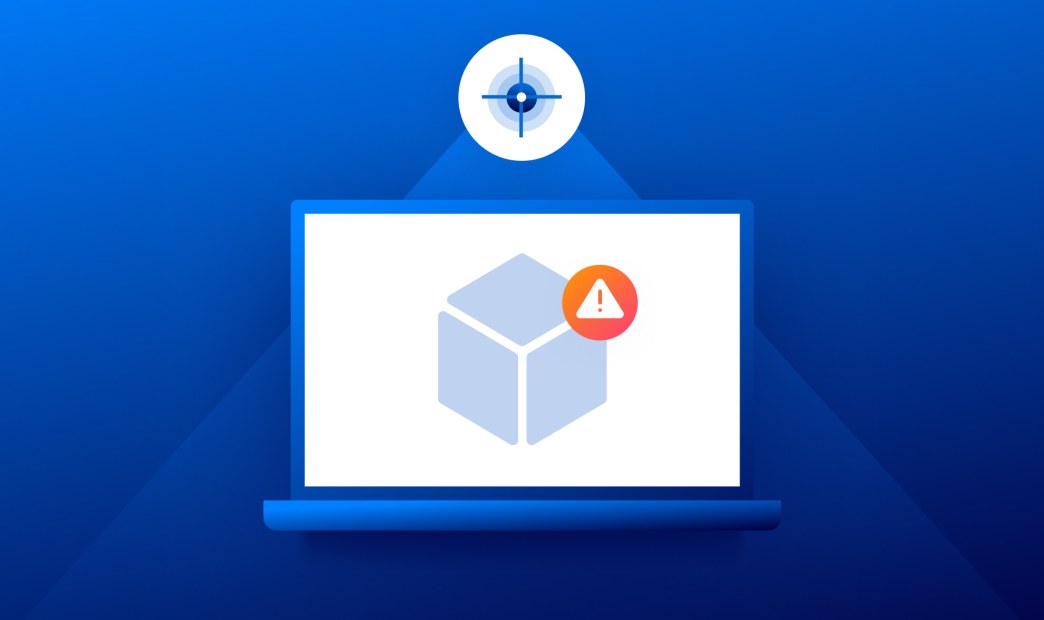Software weaknesses known as zero-day vulnerabilities are found by threat actors before the respective software vendors and owners do – frequently within a single day. Due to the teams’ lack of time to release a patch, attackers have the advantage and can concentrate on systems they believe to be susceptible.
Teams are aware that the moment to be planning for an attack is NOT when a zero-day vulnerability (such as log4j or “log4shell”) happens. As soon as a zero-day occurs, the SOC team must be prepared to fix issues as well as spot and address any indicators of compromise or malicious activity. This post will address the governance and security procedures that need to be prioritized in order to manage cloud risks related to open CVEs and protect SOCs from a forthcoming zero-day vulnerability.
What Is a Zero-Day Vulnerability?
A zero-day (or 0-day) vulnerability is a threat to software or hardware that is discovered by attackers before the vendor is made aware of it. The term “zero-day” means that system designers have not yet included any security measures, which increases the likelihood that an attack will be successful.
Apart from discovery, there are two main phases of a zero-day event:
- A zero-day exploit, which is an attack method based on a recently identified vulnerability, is used by threat actors to target a system.
- A zero-day attack uses a zero-day exploit to compromise, damage, or steal data from a vulnerable system.
Zero-day vulnerabilities are typically discovered by security researchers, white hats, and penetration testers, giving organizations enough time to release emergency updates. If attackers discover and then widely disseminate vulnerabilities, they may expose the bugs through system exploitation, thus alerting researchers to their presence. When security vendors discover a vulnerability before consumers do, then make it public, they alert both users and attackers to its existence, which increases system vulnerability while no patch is available.
How to Prepare for a Zero-Day Vulnerability
Unpredictable zero-day vulnerabilities are one of the most difficult issues that security teams must deal with today. From the time a vulnerability is discovered until a patch is applied, all corporate systems are at risk, making them especially vulnerable to zero-day attacks. Attackers have enough time to launch attacks, causing organizations to lose data. Organizations can reduce the risks associated with zero-day vulnerabilities by implementing the following best practices for zero-day vulnerability preparation.
Maintain a Real-Time Cloud Asset Inventory
Implementing vulnerability management with real-time asset inventory monitoring is one way for organizations to ensure zero-day vulnerability preparedness. Enterprises frequently struggle to make sense of the plethora of known and unknown vulnerabilities because they lack visibility into their inventory of users, cloud instances, devices, and apps, which would provide security oversight. Organizations can also hire Orca Security to assist them in identifying cloud assets and preparing for any zero-day vulnerability occurrences.
Unify Data Sources
Cloud SOC teams can prepare for a zero-day vulnerability by consolidating data sources for SIEM intake and monitoring – particularly cloud log sources. The unification of data sources, which provides end-to-end visibility into numerous cloud data platforms, enables the discovery of security threats and weaknesses in cloud systems. To detect cloud IOAs/IOCs and vulnerabilities, organizations should also work with vendors such as Orca to integrate multiple cloud solutions into a single platform with a unified data model.
Tabletop Exercises (TTX)
Tabletop exercises are critical for practicing zero-day incident response and remediation activities. This is because they simulate scenarios of what a zero-day vulnerability and attack may look like, thus providing SOC teams with hands-on training in the event of such vulnerabilities.
Vulnerability Management with SOAR
SOAR (Security Orchestration, Automation, and Response) can also be used by SOC teams to prepare for a zero-day vulnerability. By automating three crucial security workflow processes – threat and vulnerability monitoring, incident response, and security operations automation – SOAR is a software suite that aids businesses in increasing the effectiveness of their security operations.
Without requiring human intervention, SOAR enables enterprises to gather information about security threats and respond to security incidents. This ensures that critical security flaws are remediated in the event of a zero-day attack. SOAR manages vulnerabilities through machine learning by discovering unpatched and undiscovered system and application misconfigurations that would otherwise lead to significant security breaches.
Cloud Infrastructure Segmentation
To prepare for zero-day vulnerabilities, SOC teams should segment sensitive data from critical cloud infrastructure. Cloud network segmentation is a tried-and-true security technique used to limit access to data and resources to only specified hosts and users from other authorized zones. Thus, the danger of data breaches is decreased by surrounding IT systems and data in layer upon layer of security.
Zero-Day Vulnerability Preparedness with Orca Security
Zero-day vulnerabilities in cloud assets are nearly unavoidable, but methods such as vulnerability detection, management, and patching will enable businesses to be prepared for them. Given the volume of warnings and software procedures that SOC teams must manage, resolving these issues will still take time. Fortunately, Orca’s Cloud Security Platform and researchers provide a solution that identifies and assesses cloud risks and vulnerabilities to support cloud security best practices.
The Orca Cloud Security Platform scans your cloud estate and provides total visibility to assess cloud risks. With the help of a cloud security expert and a thorough key findings report, you can take advantage of unique insights and remediation recommendations for your most important security concerns, including concerns related to zero-day attacks.
Register now for a free 30-day trial of the Orca Security Platform and start strengthening your security posture today!






